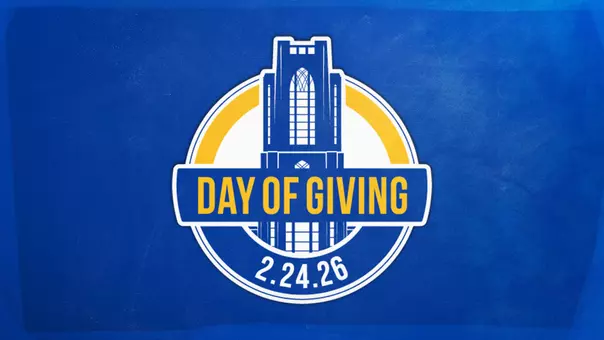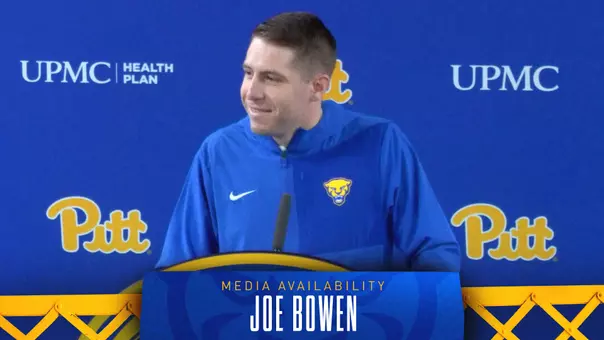University of Pittsburgh Athletics
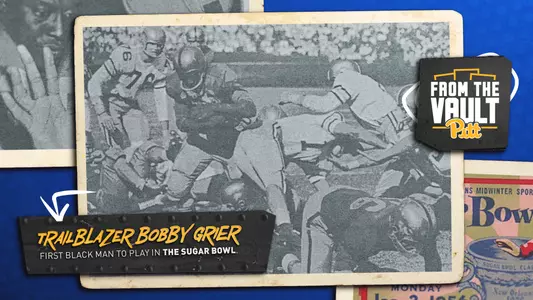
From the Vault: Bobby Grier
11/20/2025 9:00:00 AM | Football, General
Pitt Trailblazer
In December of 1955 Governor Marvin Griffin of Georgia declared “The South stands at Armageddon. The battle is joined. We cannot make the slightest concession to the enemy in this dark and lamentable hour of struggle.” Rather than speaking of the battle to take place between Pitt and Georgia Tech on the gridiron, he spoke of his own crusade against racial integration.
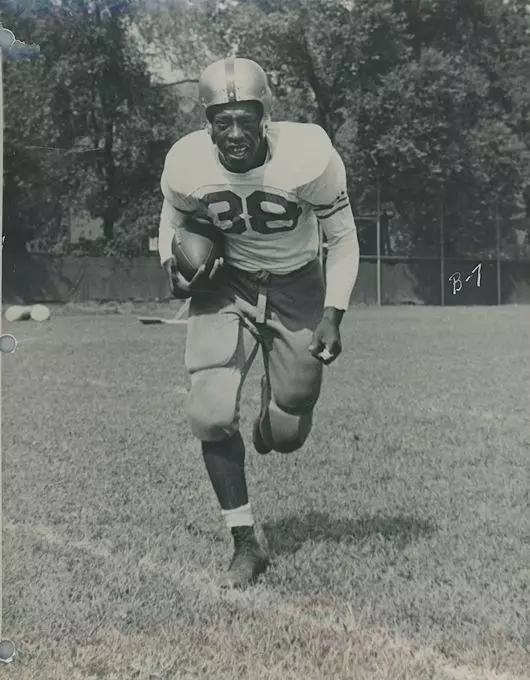
Bobby Grier was a two-way standout for John Michelosen's Pitt teams in the mid-1950's. A fullback and linebacker, Grier was a three-year letterman at Pitt (1953-55) who's mere invitation to the 1956 Sugar Bowl was enough to cause Gov. Griffin to speak in such apocalyptic terms. The Panthers were slated to appear in New Orleans after the city's Mid-Winter Sports Association, who sponsored the event, invited the integrated squad. The Cotton and Orange Bowls, the Sugar Bowl's main competitors had already begun accepting integrated teams in years past and feeling the pressure to continue scheduling top-tier matchups, the Association broke from tradition and offered Pitt a spot.
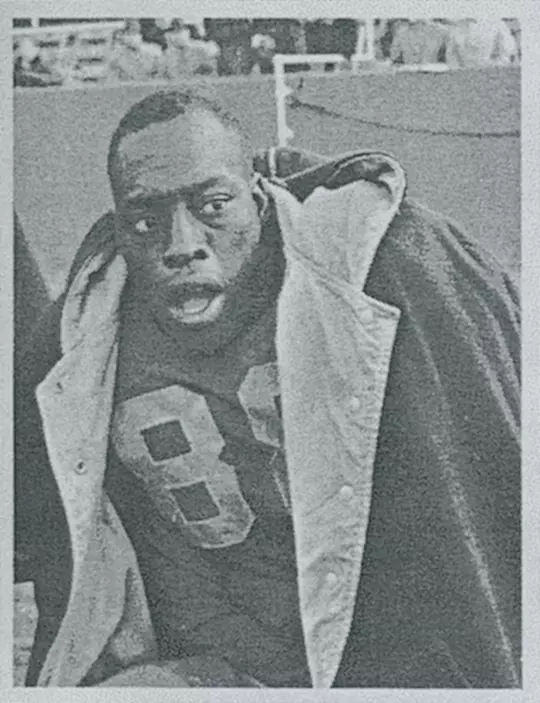
I learned that things were going to change and things were a changin', it showed that sports has a way to change a whole lot of things."Bobby Grier in 2006 Speaking to the New York Times
While the move was likely to spark controversy it was originally agreed to without much fuss. Georgia Tech was informed that Grier would be playing with Pitt from the time they received their invitation and agreed to the matchup after discussion between coaches and administrators. Despite privately assuring Georgia Tech’s Head Coach Bobby Dodd that he should accept the bowl game, on December 2nd Gov. Griffin publicly decried the school’s participation and called for an emergency meeting of the state university board to prevent the Yellow Jackets from attending.
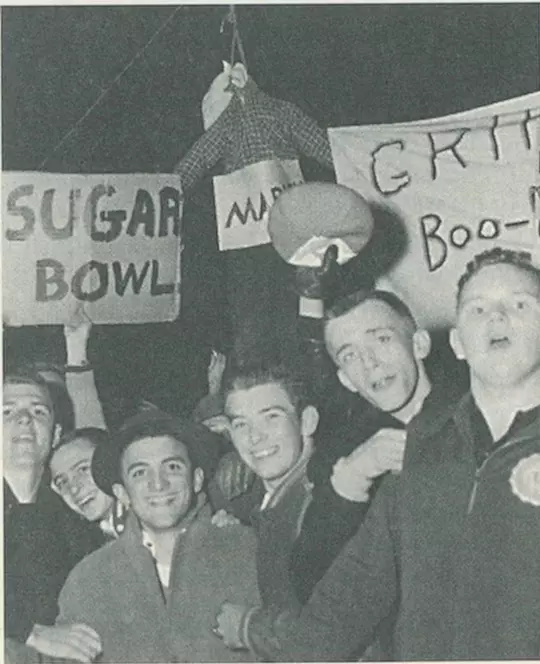
Georgia Tech students began to gather on campus early that evening and burned a likeness of the governor before proceeding to the capitol building to hang another effigy and damage property. A small group departed the capital for Griffin’s home. After a standoff with police, students dispersed from outside the governor's mansion in the early hours of the following day. While the demonstration could have been construed as an act of racial solidarity, the president of Georgia Tech student government made clear in an apology to the University of Pittsburgh the protests were “not against segregation but against political forces which are trying to prevent us from going to the Sugar Bowl.”
The State University Board met on December 5th and approved the trip to New Orleans, the news of which was widely reported, even more so than the boycott that had begun the same day in Montgomery, Alabama to protest the arrest of Rosa Parks.
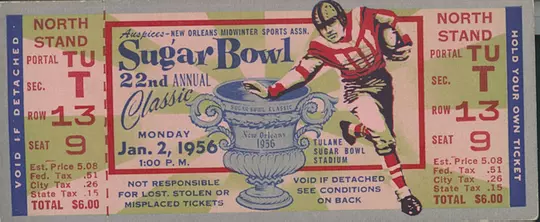
On the field, the Sugar Bowl proved to be defensive battle, with the only points of the game coming from a single Georgia Tech touchdown on the back of a penalty levied against Grier.
While the incident is highly contested Grier insists and photo evidence suggests that the flag was thrown unjustly, and the game was lost due to a faulty call.
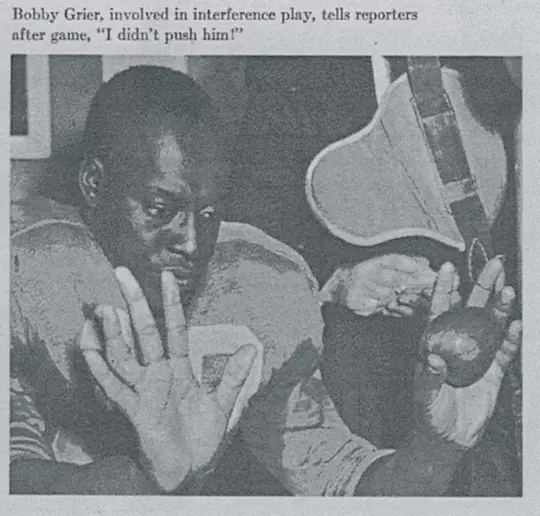
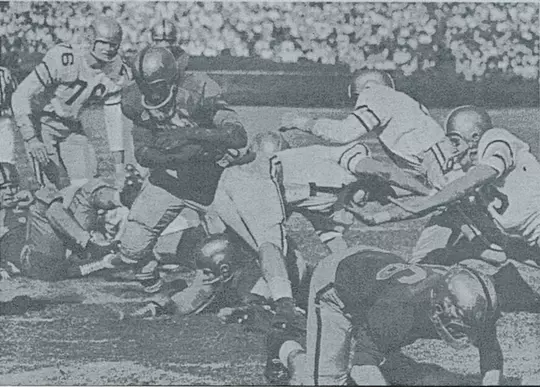
Despite the loss Grier said he didn’t remember one negative letter, phone call or shout from the stands only the outpouring of support he received from across the country and as far away as London. “I learned that things were going to change and things were a changin', he said. “it showed that sports has a way to change a whole lot of things."


